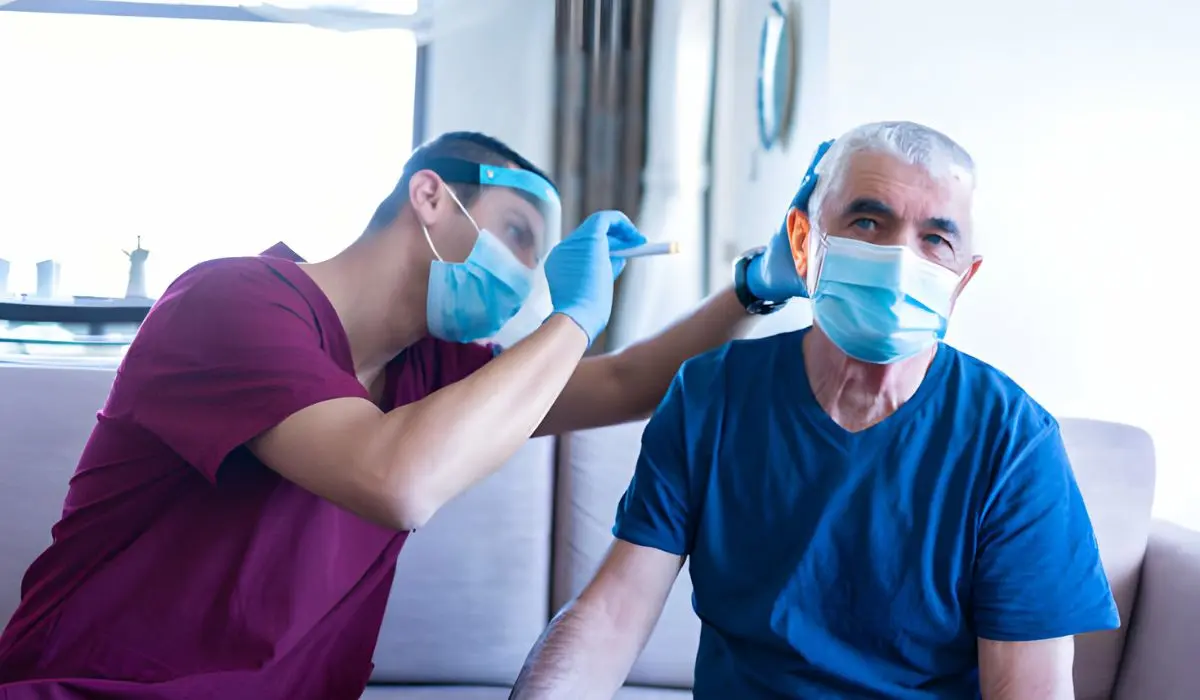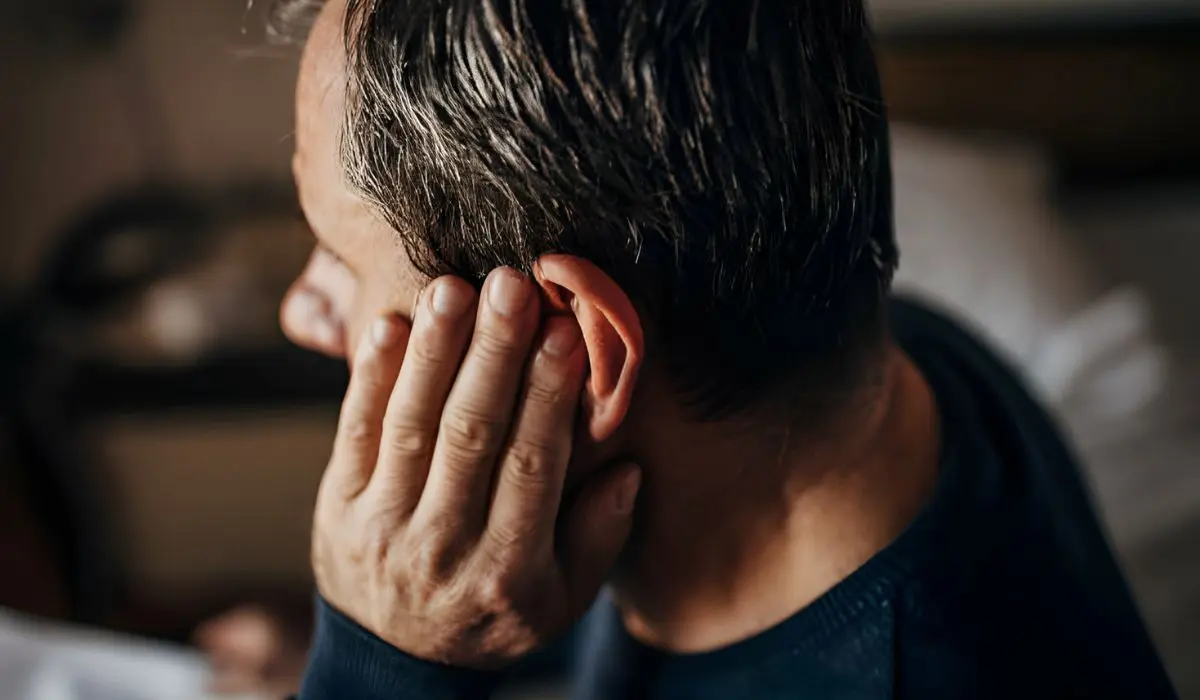The role of the human ear is very crucial. In our day-to-day lives, it has a great responsibility, to listen. The organ is extremely intricate and delicate. Therefore, any kind of issue related to the ear should be considered with due seriousness. One of these issues is the mysterious and annoying noise that one can hear inside the ear. This complication can be caused by a plethora of factors. Here we will be concerned about the same and discuss the solutions.
Causes Of Crackling Feeling In Ears

Earwax Buildup:
Overgrowth of earwax crackles. Natural earwax (cerumen) protects ears. However, large doses may hurt and impede hearing. It takes numerous steps to fix this. Start with OTC ear drops to soften earwax. These drops break down wax for easier removal. A moderate warm water irrigation may eliminate softened earwax after ear drops. If the problem persists, get expert treatment. ENT experts handle ear, nose, and throat issues. Crackling sounds may be diagnosed by an ENT specialist who can check the ear canal. Earwax collection or underlying issues causing discomfort and hearing loss may be diagnosed by professionals. They may gently remove stubborn earwax with specialist equipment or offer additional treatments.
Fluid In The Ear:
Fluid in the middle ear, produced by sinus infections or allergies, may cause crackling. This fluid collection hinders Eustachian tube drainage, creating ear pressure imbalances. Eustachian tube drainage is hampered by nasal congestion. The trapped fluid produces pressure variations and ear cracking when these tubes are obstructed. To relieve congestion, consider over-the-counter decongestants or nasal irrigation. Over-the-counter decongestants improve airflow and discharge by reducing nose edema. These medications clear nasal congestion, restoring Eustachian tube function. Saline nasal irrigation clears congestion and improves Eustachian tube discharge.
TMJ Dysfunction:
Jaw movement, TMJ disorders, may cause ear crackling. The ear canal’s proximity to the jaw joint makes it susceptible to TMJ issues. TMJ may induce ear cracking and other symptoms. Ear crackling from TMJ problems may be reduced with exercises. TMJ activities improve joint function and reduce cracking. Jaw discomfort, stress, and ear cracking may be relieved by warm compresses. TMJ-related ear problems also need excellent posture. Poor head-and-neck posture may aggravate TMJ symptoms. Ergonomics and head-neck alignment may lessen jaw pain and ear cracking. Consult a specialist if TMJ and ear crackling worsen. Dentists and TMJ experts assess extensively. The jaw joint, muscle function, and other factors may be examined for a diagnosis.
Noise-Induced Trauma:
Regular loud noise exposure may damage sensitive ear structures, creating crackling. Since loud noises may damage ears, hearing protection is essential. Regularly using ear protection in loud circumstances may prevent injury. Earplugs or noise-canceling headphones block loud sounds. Earplugs suppress noise by fitting snugly. Modern noise-canceling headphones detect and suppress ambient sounds to protect. Damage is visible and requires professional treatment. Assessing hearing loss and implementing safeguards requires an audiologist. Audiologists thoroughly examine hearing to assess damage severity and frequencies. Audiologists advise on hearing protection beyond examination. Individuals may wear earplugs or noise-canceling devices adapted to their lifestyle. Audiologists may also recommend hearing-preserving lifestyle adjustments.
Middle Ear Infections:
Middle ear infections may cause fluid accumulation and cracking. These diseases and their symptoms need prompt treatment. Middle ear infections need rapid care. Bacteria causing fluid buildup are treated with antibiotics. Clearing the illness and preventing recurrence requires following antibiotic therapy. Effective therapy requires complete antibiotic courses to prevent antibiotic resistance, a serious healthcare concern. When fluid drainage is problematic, physicians may recommend ear tubes. Ear tubes are small, temporary tubes placed into the eardrum.
Eustachian Tube Dysfunction:
Eustachian tubes balance middle ear and throat pressure. The cracking sound of broken tubes indicates pressure imbalance. Eustachian tube dysfunction has several simple treatments. Chewing gum, swallowing, and yawning open Eustachian tubes. As muscles move, tubes open and release pressure. Maintaining these procedures may alleviate moderate Eustachian tube dysfunction and cracking. Professional intervention is recommended if the issue persists. Healthcare professionals, particularly ENT specialists, may do thorough tests and provide customized therapy. If Eustachian tube dysfunction continues, doctors may prescribe nasal decongestants or medications. Decongestants diminish nasal congestion, which may induce Eustachian tube dysfunction.
Allergies:
Due to ear canal inflammation, allergic reactions may induce crackling. Allergen detection and treatment are essential for symptom reduction. Treatment with antihistamines lowers ear allergy symptoms. Treating allergic ear discomfort requires allergen identification and minimization. Meals, environmental factors, and airborne substances are thoroughly examined as allergy triggers. Allergens may be reduced to decrease ear crackling after identification. Allergic responses are treated with antihistamines. Antihistamines block histamine to soothe ears. The correct antihistamine and dosage are essential for symptom relief.
Underlying Medical Conditions:
Otosclerosis and Meniere’s disease produce ear crackling. A comprehensive medical examination to identify and address these underlying disorders is the first step to success. Inner ear dysfunction in Meniere’s disease may produce vertigo, hearing loss, and crackling. In otosclerosis, abnormal middle ear bone formation may cause hearing loss and cracking. Early diagnosis permits customized treatments to improve ear health. This starts with a thorough medical evaluation. Crackling sounds may be detected by ENT specialists after extensive tests. Specialist testing, imaging, and a comprehensive medical history may be required to diagnosis.
Stress and Anxiety:
Fear and stress may tighten the muscles surrounding the ears and lips, making crackling sounds. Understanding the link between mental health and physical symptoms is key to treating these conditions. Ear and mouth muscle stress may cause crackling. Stress and anxiety may clench the jaw. Crackling noises may result from increasing strain on fragile ear tissues. Reduce stress to relieve these symptoms. Meditation calms focus and releases muscle tension. Deep breathing relaxes the nervous system, including the ear and jaw muscles.
Avoiding Q-Tip Misuse:
Cotton swabs are appealing for ear cleaning, but they may push earwax deeper. Improper cleaning might create blockages and ear cracking. Ear health requires safer methods. Avoid inserting cotton swabs into ears. Instead, carefully remove the outer ear earwax with a washcloth. This treatment is safe and successful since it treats the external ear without driving earwax into the canal. Continued earwax buildup requires expert assistance. Earwax removal is safe and effective with a specialist, preferably an ENT. These experts can check, evaluate, and cure earwax accumulation.
Conclusion:
Ear crackling can be a perplexing and bothersome issue, but understanding its underlying causes is key to finding relief. From addressing earwax buildup to managing stress, the strategies outlined in this article provide a comprehensive guide for those seeking to eliminate crackling sounds and restore the harmony of clear hearing. If symptoms persist or worsen, it is crucial to consult with a healthcare professional for a thorough evaluation and personalized treatment plan.

